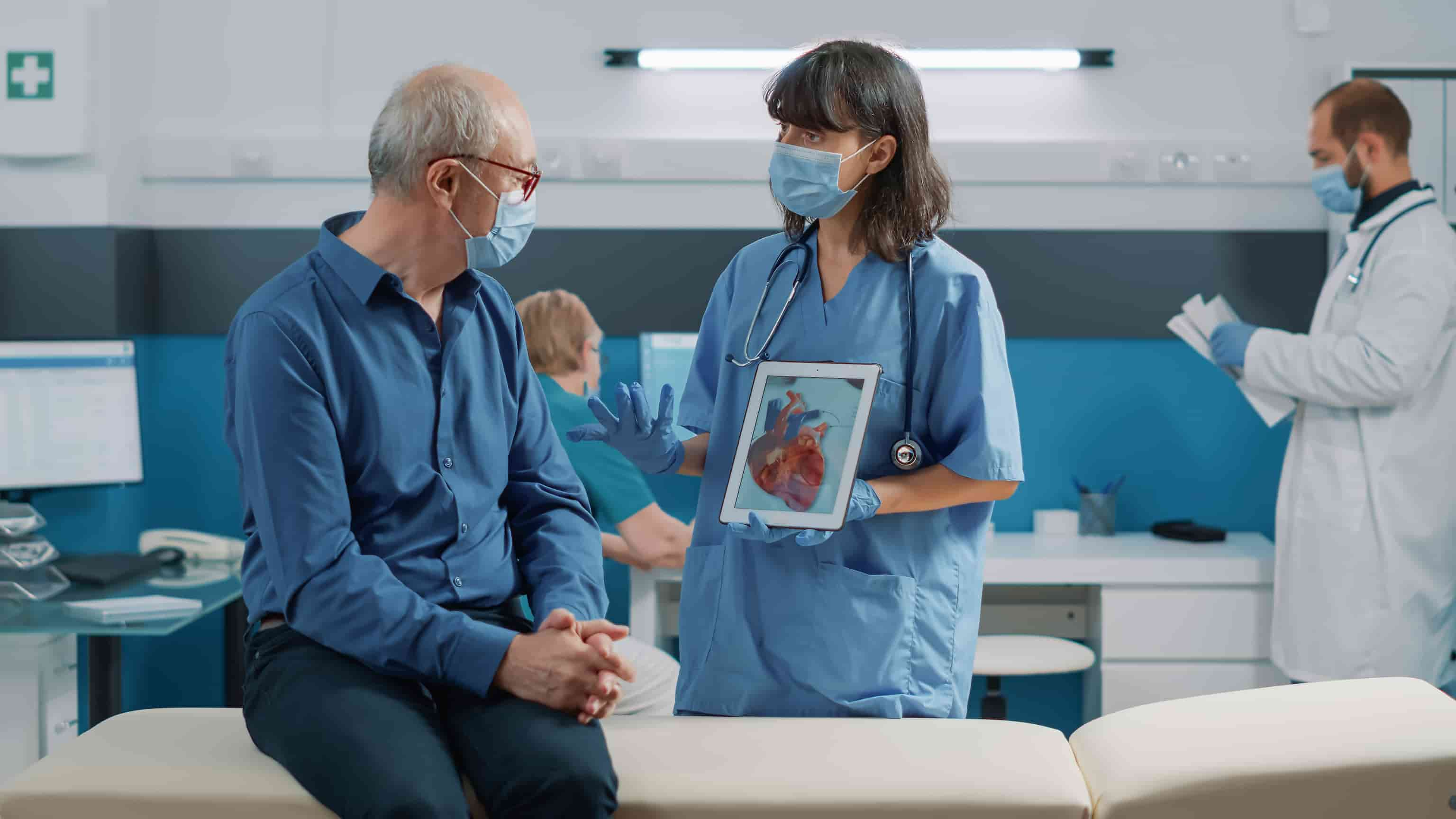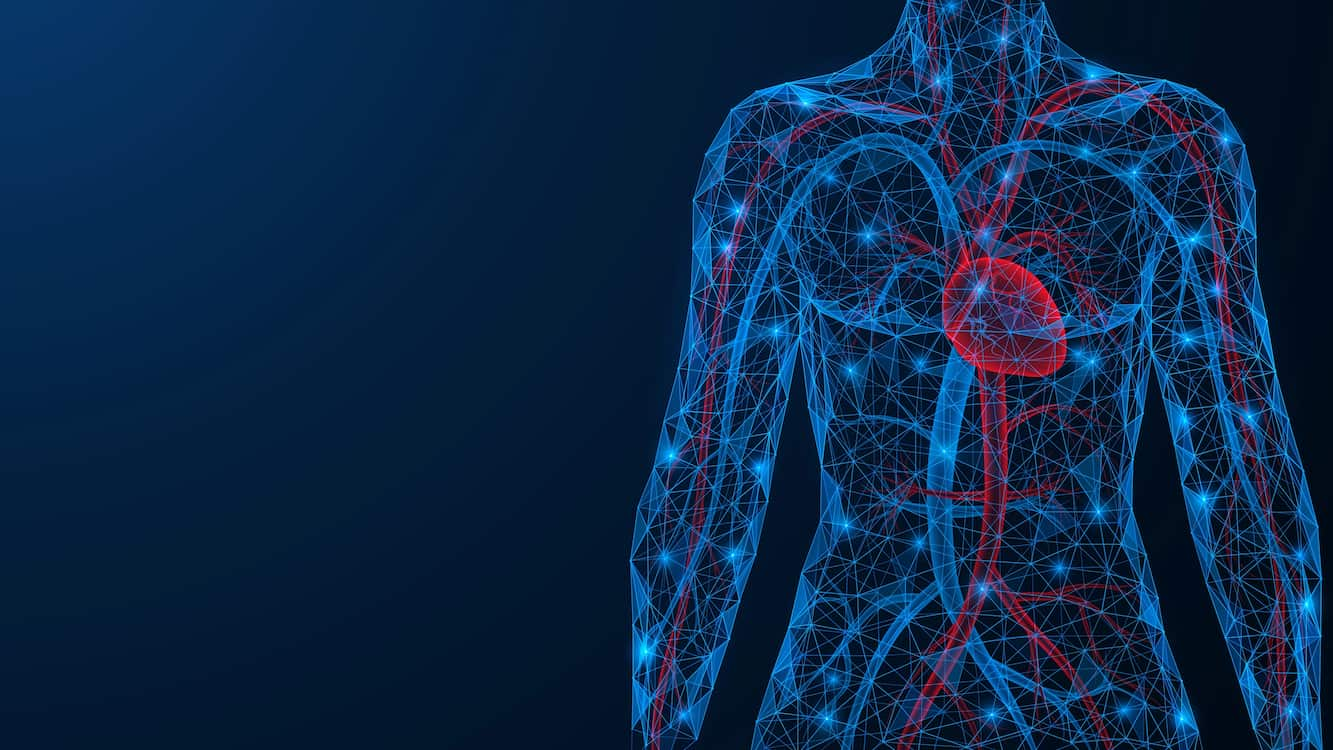Transmyocardial Revascularization in Turkey
Healthy Türkiye helps you find the best transmyocardial revascularization in Turkey at affordable prices and adopts a 360-degree service approach in all areas of health through affiliated hospitals.
- Medical Treatment
- Cardiac Surgery in Turkey
- Balloon Valvuloplasty in Turkey
- Coronary Angiography in Turkey
- Heart Bypass Surgery in Turkey
- Pediatric Cardiac Surgery in Turkey
- Aortic Aneurysm Surgery in Turkey
- Atherectomy in Turkey
- Cardiac Ablation Treatment in Turkey
- Carotid Endarterectomy in Turkey
- Coronary Angioplasty in Turkey
- DOR Procedure in Turkey
- Open Heart Surgery in Turkey
- Pacemaker Implantation in Turkey
- Valve Replacement in Turkey
- Defibrillator Implant Surgery in Turkey
- Transmyocardial Revascularization in Turkey
- Transcatheter Aortic Valve Replacement in Turkey
- Homepage
- Medical Treatment
- Transmyocardial Revascularization in Turkey

About Transmyocardial Revascularization in Turkey
Transmyocardial revascularization in Turkey is performed by experienced surgeons with the latest technology. Transmyocardial revascularization, also known as TMR or TMLR (transmyocardial laser revascularization), is a surgical procedure that uses a special carbon dioxide (CO2) laser to shoot tiny pinholes or channels through the heart muscle and into the heart’s lower left chamber (left ventricle). These new channels develop the flow of oxygen-rich blood to the heart muscle, reducing the effects of angina (chest pain), a symptom of coronary artery disease.
Generally, patients experiencing coronary artery disease have coronary artery bypass grafting (CABG surgery), angioplasty, or stenting, but for patients with advanced heart disease or additional health problems, these procedures may be too risky. Transmyocardial revascularization is frequently the safest and most effective alternative. Transmyocardial revascularization is also done for previous CABG patients who cannot tolerate another bypass operation.
Cardiac surgeons at Healthy Türkiye are national leaders in the use of minimally-invasive approaches for transmyocardial revascularization. Turkey is the country that hosts the most foreign patients in Europe because of its quality and reliable service.

What Is Transmyocardial Revascularization in Turkey?
Transmyocardial revascularization (also called TMR or TMLR) is a treatment for patients with coronary artery disease who have not answered or they are not eligible for procedures such as angioplasty and stenting, medicines, and coronary artery bypass graft surgery. It is a surgical procedure used to relieve angina (chest pain) that is often caused by a lack of oxygen and blood flow to the heart, or ischemia.
During the surgical procedure, the surgeon makes a tiny incision in the left side of the chest. Then he or she applies a special carbon dioxide laser to create channels in the heart muscle, which will improve blood flow. 20 to 40 one-millimeter channels are made, depending on the patient’s condition. A computer directs the laser beams to the appropriate site of the heart in between heartbeats, which helps prevent electrical disturbances. Bleeding stops once the specialist places his or her finger over the channel openings for a few moments.
Transmyocardial revascularization takes between one and two hours to perform and patients generally stay in the hospital for between four and seven days. Studies show that it might work by stimulating angiogenesis, or the growth of new blood vessels, and also by destroying nerve fibers that cause the patient to experience chest pain.
What to Expect for Transmyocardial Revascularization in Turkey?
The transmyocardial revascularization operation will be scheduled at a time that is best for you and your specialist, except in urgent cases. You must be sure to tell your surgeon and cardiologist about any changes in your health including symptoms of a cold or the flu. Any infection might affect your recovery. Also, review all medicines (over-the-counter and supplements included) with your cardiologist and surgeon. Before transmyocardial revascularization surgery, you might have to have an electrocardiogram (ECG or EKG), urine tests, blood tests, and a chest x-ray to give your surgeon the latest information about your health.
If you smoke, your specialist will want you to stop at least 2 weeks before your transmyocardial revascularization surgery. Smoking before the procedure can lead to problems with blood clotting and breathing. The night before the operation, you will be asked to bathe to reduce the number of germs on your skin.
A medication (anesthetic) will make you sleep during the operation. This is known as “anesthesia.” Because anesthesia is safest on an empty stomach, you’ll be asked not to eat or drink after midnight the night before the operation. If you do eat or drink anything after midnight, it is important that you tell your anesthesiologist and specialist. You will get complete instructions from your specialist and surgeon about the procedure, however, there will be some basic information that you can expect as a transmyocardial laser revascularization patient.
Before Transmyocardial Revascularization in Turkey
Prior to the transmyocardial revascularization procedure in Turkey, your specialist will perform a physical examination and review your medical history. To determine if transmyocardial revascularization is right for you, you will most likely have a coronary angiogram, which provides a special x-ray picture of your coronary arteries. A nurse will connect a catheter (a long, thin tube) to a blood vessel in your leg or arm, and guide it to your heart. He or she will inject a contrast dye, which allows for a moving picture of the arteries to be created. You might have an electrocardiogram or magnetic resonance picture in addition to, or instead of, the angiogram.
You must be sure to bring a list of any medicines, dietary supplements, or herbal supplements that you take with you to your specialist’s appointment. Tell your specialist if you have any allergies. Coronary artery bypass surgery procedures and stenting are the traditional ways in which coronary artery disease and chest pain are managed, and they are considered the first-line treatment. Transmyocardial revascularization is considered a viable treatment option for those patients who:
- You have a high-risk for a second angioplasty or bypass;
- You have blockages that are too spread out to be treated with bypass alone;
- You have build-up in the arteries (atherosclerosis) and have had a heart transplant; or
- You have been told there are no other options.
If you have experienced these conditions, you are eligible for transmyocardial revascularization in Turkey.

We Care About Your Health
Healthy Türkiye provides the best for your health and comfort. You will feel privileged with us.
7/24 Quality Personal Assistance Throughout Your Journey
Customizable for You All-Inclusive Packages
Get the Right Advice for your Health
How Is Transmyocardial Revascularization Surgery Performed in Turkey?
Many transmyocardial revascularization patients in Turkey are admitted to the hospital the day before the surgical operation or, in some conditions, on the morning of the surgical operation. Small metal disks called electrodes will be linked to your chest. These electrodes are connected to an electrocardiogram device, which will monitor your heart’s rhythm and electrical activity. You will receive a local anesthetic to numb the site where a plastic tube (called a line) will be inserted in an artery in your wrist. An intravenous (IV) line will be inserted into your vein. The IV line will give you anesthesia during the surgical operation. You will be given something to help you relax (a mild tranquilizer) before you are taken into the surgical operating room.
After you are exactly asleep, a tube will be inserted down your windpipe and linked to a device called a respirator, which will take over your breathing. Another tube will be inserted through your nose and throat and into your stomach. This tube will stop liquid and air from collecting in your stomach, so you’ll not feel sick and bloated when you wake up. A thin tube called a catheter will be inserted into your bladder to collect any urine created during the surgical operation.
The cardiovascular surgeon leads the surgical team, which involves other assisting surgeons, an anesthesiologist, and surgical nurses. First, the specialist makes a cut in the left side of the chest to get to the heart’s left ventricle. Then the specialist uses a special carbon dioxide laser to make twenty to forty small channels in the heart muscle. These channels are around 1 mm wide, or about the size of the head of a pin. The surgeon makes the channels when the heart is in systole (pumping blood) because that is when the heart’s walls are the thickest and the least possible to be damaged.
The channels might bleed for a few seconds, but the bleeding will stop when the surgeon presses lightly on the channels with a finger. The tops of the channels close over with a blood clot, but in the heart, the channels stay open. The full transmyocardial laser revascularization procedure generally takes about 2 hours. Sometimes, one part of the heart can be treated with bypass surgery while another part of the heart can be treated with transmyocardial revascularization. In these conditions, transmyocardial revascularization and bypass surgery are done at the same time.
Advantages of Transmyocardial Revascularization
The advantage of transmyocardial revascularization is that it provides a last-resort option for patients with severe angina. It can be especially effective in patients with other cases – like diabetes – that preclude the use of bypass surgery. Although clinical data are still somewhat limited, eighty to ninety percent of patients have seen important improvement in their symptoms (at least a fifty percent improvement) at one-year follow-up. A study concluded that patients who had transmyocardial revascularization had relief of chest pain as well as improved quality of life, improved blood flow to the heart, and decreased hospital admissions.
After Transmyocardial Revascularization in Turkey
After transmyocardial revascularization, you will be transferred to the intensive care unit of the hospital. After a day or so, you will be moved to another floor and monitored for the next 2 to 3 days, until discharge. Follow-up care often includes a physical examination, an evaluation of symptoms and patient history, and then a series of tests such as an echocardiogram, to evaluate progress.

2026 Cost of Transmyocardial Revascularization in Turkey
All types of medical attentions like transmyocardial revascularization are very affordable in Turkey. Many factors are also included in determining the cost of transmyocardial revascularization in Turkey. Your process with Healthy Türkiye will last from the time you decide to have a transmyocardial revascularization in Turkey until the time you are fully recovered even if you are back home. The exact transmyocardial revascularization procedure cost in Turkey depends on the type of operation involved.
The cost of transmyocardial revascularization in Turkey does not demonstrate many variations in 2026. Compared to costs in developed countries like the United States or the UK, transmyocardial revascularization costs in Turkey are relatively low. So, it’s no wonder patients from across the world visit Turkey for transmyocardial revascularization procedures. However, the price is not the only factor affecting choices. We suggest looking for hospitals that are safe and have transmyocardial revascularization reviews on Google. When people decide to seek medical help for transmyocardial revascularization, they will not only have had low-cost procedures in Turkey, but also the safest and best treatment.
At clinics or hospitals contracted with Healthy Türkiye, patients will receive the best transmyocardial revascularization from specialist doctors in Turkey at affordable rates. Healthy Türkiye teams provide medical attention transmyocardial revascularization procedures and high-quality treatment to patients at a minimum cost. When you contact Healthy Türkiye assistants, you can get free information about the cost of transmyocardial revascularization in Turkey and what this cost covers.
The price of transmyocardial revascularization in the UK is in the range of £35.000-£51.000.
The price of transmyocardial revascularization in the USA is around $65.000-$73.000.
The price of transmyocardial revascularization in Turkey is approximately $10.000-$17.000.
Price of Transmyocardial Revascularization in the UK
Price of Transmyocardial Revascularization in the USA
Price of Transmyocardial Revascularization in Turkey
Why Is Transmyocardial Revascularization Cheaper in Turkey?
One of the main considerations before traveling abroad for transmyocardial revascularization is the cost-effectiveness of the whole process. Many patients think that when they add flight tickets and hotel expenses to their transmyocardial revascularization costs, it will become very expensive to travel, which is not true. Contrary to popular belief, round-trip flight tickets to Turkey for transmyocardial revascularization can be booked very affordably.
In this case, assuming you are staying in Turkey for your transmyocardial revascularization, your total travel expense of flight tickets and accommodation will only cost less than any other developed country, which is nothing compared to the amount that you are saving. The question “Why is transmyocardial revascularization cheaper in Turkey?” is so common among patients or people simply curious about getting their medical treatment in Turkey. When it comes to transmyocardial revascularization prices in Turkey, there are 3 factors allowing cheaper prices:
The currency exchange is favorable for whoever looking for transmyocardial revascularization has a euro, dollar, or pound;
The lower cost of living and cheaper overall medical expenses such as transmyocardial revascularization;
For transmyocardial revascularization, incentives are given by the Turkish Government to medical clinics working with international clients;
All these factors allow for cheaper transmyocardial revascularization prices, but let’s be clear, these prices are cheaper for people with strong currencies (as we said, euro, dollar, Canadian dollar, pound, etc).
Every year, thousands of patients from all over the world come to Turkey to get transmyocardial revascularization. The success of the healthcare system has increased in recent years, especially for transmyocardial revascularization. It’s easy to find well-educated and English-speaking medical professionals in Turkey for all kinds of medical treatment, such as transmyocardial revascularization.

Why Choose Turkey for Transmyocardial Revascularization?
Turkey is a common choice among international patients seeking advanced transmyocardial revascularization. Turkey’s health procedures are safe and effective, with a high success rate like transmyocardial revascularization. The increasing demand for high-quality transmyocardial revascularization at affordable prices has made Turkey a popular medical travel destination. In Turkey, transmyocardial revascularization is performed by highly experienced and trained doctors with the most advanced technology in the world. Transmyocardial revascularization is done in Istanbul, Ankara, Antalya, and other major cities. The reasons for choosing transmyocardial revascularization in Turkey are as follows:
High-quality hospitals: Joint Commission International (JCI) accredited hospitals have dedicated transmyocardial revascularization units that are specially designed for patients. International and national strict protocols provide effective and successful transmyocardial revascularization for patients in Turkey.
Qualified experts: The expert teams include nurses and specialist doctors, together to carry out transmyocardial revascularization according to the patient’s needs. All the included doctors are highly experienced in performing transmyocardial revascularization.
Affordable price: The cost of transmyocardial revascularization in Turkey is affordable compared to Europe, the USA, the UK, Singapore, Australia, etc.
The high success rate: Highly experienced specialists, the best available technology, and stringently followed safety guidelines for post-operative care of the patient, resulting in a high success rate for transmyocardial revascularization in Turkey.
Is Transmyocardial Revascularization Safe in Turkey?
Did you know Turkey is one of the most visited destinations for transmyocardial revascularization in the world? It is ranked as one of the most popular tourist destinations for transmyocardial revascularization. Over the years, it has also come to be a very popular medical tourism destination, with many tourists coming in for transmyocardial revascularization. There are so many reasons why Turkey stands out as a leading destination for transmyocardial revascularization. Because Turkey is both safe and easy to travel to, with a regional airport hub and flight connections to pretty much everywhere, it is preferred for transmyocardial revascularization.
The best hospitals in Turkey have experienced medical staff and specialists who have performed thousands of medical services such as transmyocardial revascularization. All procedures and coordination related to transmyocardial revascularization are controlled by the Ministry of Health in accordance with the law. Over many years, the greatest progress in medicine has been observed in the field of transmyocardial revascularization. Turkey is known among foreign patients for its great opportunities in the area of transmyocardial revascularization.
To emphasize, besides the price itself, the key factor in selecting a destination for transmyocardial revascularization is certainly the standard of medical services, the hospital staff’s high level of expertise, hospitality, and the safety of the country.
All-Inclusive Packages for Transmyocardial Revascularization in Turkey
Healthy Türkiye offers all-inclusive packages for transmyocardial revascularization in Turkey at much lower prices. Extremely professional and experienced doctors and technicians carry out the high quality transmyocardial revascularization. The cost of transmyocardial revascularization in European countries can be quite expensive, especially in the UK. Healthy Türkiye provides cheap all-inclusive packages for a long and short stay of transmyocardial revascularization in Turkey. Because of many factors, we can provide you with many opportunities for your transmyocardial revascularization in Turkey.
The price of transmyocardial revascularization differs from other countries due to medical fees, staff labor prices, exchange rates, and market competition. You can save much more in transmyocardial revascularization compared to other countries in Turkey. When you purchase an all-inclusive package with Healthy Türkiye, our healthcare team will present a list of hotels for you to choose from. In transmyocardial revascularization travel, you will have the price of your stay included in the all-inclusive package cost.
In Turkey, when you purchase transmyocardial revascularization all-inclusive packages through Healthy Türkiye, you will always receive VIP transfers. These are provided by Healthy Türkiye, which has contracted with highly qualified hospitals for transmyocardial revascularization in Turkey. The Healthy Türkiye teams will organize everything about transmyocardial revascularization for you and have you picked up from the airport and safely brought to your accommodation. Once settled in the hotel, you will be transferred to and from the clinic or hospital for transmyocardial revascularization. After your transmyocardial revascularization has been successfully completed, the transfer team will return you to the airport in time for your flight home. In Turkey, all packages of transmyocardial revascularization can be arranged upon request, which relaxes the minds of our patients. You can reach out Healthy Türkiye for everything you need to know about transmyocardial revascularization in Turkey.
The Best Hospitals in Turkey for Transmyocardial Revascularization
The best hospitals in Turkey for transmyocardial revascularization are Healthy Türkiye, Memorial Hospital, Acıbadem International Hospital, and Medicalpark Hospital. These hospitals attract patients from all over the world seeking transmyocardial revascularization due to their affordable prices and high success rates.
Best Doctors and Surgeons in Turkey for Transmyocardial Revascularization
The best doctors and surgeons in Turkey for transmyocardial revascularization are highly skilled professionals who offer specialized care and advanced procedures. With their expertise and state-of-the-art techniques, these specialists ensure that patients receive high-quality transmyocardial revascularization and achieve optimal health results.

Frequently Asked Questions
Transmyocardial revascularization, also known as TMR or TMLR(Transmyocardial Laser Revascularization), is a surgical procedure that uses a special carbon dioxide laser to shoot small pinholes or channels through the heart muscle and into the heart’s lower left chamber.
Transmyocardial revascularization is conducted to treat a blockage or narrowing of one or more of the coronary arteries when a bypass procedure is not possible.
TMR usually takes 1-2 hours to perform if this is the only procedure being done. It may only take minutes if performed as part of a coronary artery bypass graft (CABG) procedure.
Transmyocardial revascularization includes the use of special carbon dioxide (CO2) lasers to make small channels or pinholes through the heart muscle and into the lower-left chamber of the heart (the left ventricle) to improve the flow of oxygen-rich blood to the heart muscle, decreasing the occurrence of angina.
Transmyocardial revascularization (also called TMR and TMR) is a treatment for coronary artery disease patients who have not responded to or are not eligible for more standard procedures such as angioplasty and stenting, drug, and coronary artery bypass graft surgical operation.
Patients who are unable to receive dual antiplatelet therapy due to side effects or poor compliance are often considered to be poor candidates for stent placement. These patients can benefit from transmyocardial revascularization procedures.
